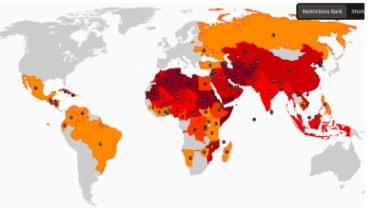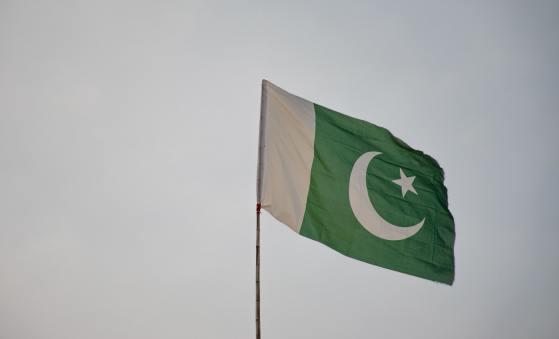
Religious freedom is increasingly under threat worldwide, according to a new report by Aid to the Church in Need (ACN).
The organisation’s Religious Freedom in the World 2025 report reveals that nearly two-thirds of the global population, about 5.4 billion people, live in countries where freedom of belief is seriously restricted or denied.
Of the 196 countries studied, 62 were found to have grave violations of religious liberty. Twenty-four were classified as facing persecution, while 38 experienced discrimination. Only Kazakhstan and Sri Lanka showed measurable improvement since the last report.
ACN International Executive President Regina Lynch said the right to freedom of thought, conscience, and religion, guaranteed under Article 18 of the Universal Declaration of Human Rights, “is not only under pressure; in many countries it is disappearing.
The report identifies authoritarian governments as the main drivers of religious repression. In most countries where persecution or discrimination occurs, state authorities monitor or silence religious expression through digital surveillance, censorship, and unlawful detentions.
“The control of faith has become a tool of political power,” the report states, describing a growing “bureaucratisation of religious repression” in countries such as China, Iran, Eritrea, and Nicaragua.
ACN editor-in-chief Marta Petrosillo noted that the report analyses the situation of all faiths, not only Christians, and is independent of any government. She said many countries offer only “symbolic” legal protections for freedom of religion.
Extremist violence remains a growing concern, particularly in Africa’s Sahel region and parts of Asia. Islamist militant groups such as IS–Sahel Province (ISSP) and JNIM have attacked communities, destroyed churches and schools, and displaced millions.
Ethno-religious nationalism also continues to endanger minorities. In India and Myanmar, Christians and Muslims face mob attacks and restrictive laws. ACN describes India’s situation as “hybrid persecution,” combining legal discrimination with social hostility.
In Nigeria, extremists linked to Fulani herders have destroyed entire villages, while conflicts in Sudan, Palestine, and Ukraine have deepened the erosion of religious rights.
The report also identifies organised crime as an emerging persecutor. In Mexico and Haiti, criminal gangs have kidnapped or murdered church leaders to tighten control over communities.
Religious intolerance is not limited to authoritarian states. Across Europe and North America, incidents of vandalism and attacks on places of worship are increasing.
France alone recorded almost 1,000 church attacks in 2023, while anti-Semitic and anti-Muslim hate crimes surged across Europe following the October 2023 Hamas attacks on Israel. In France, anti-Semitic incidents rose by 1,000 per cent, and Germany reported more than 4,000 religion-related incidents, up from just 61 the previous year.
Despite these challenges, the report highlights examples of resilience and interfaith cooperation in countries such as Mozambique and Burkina Faso, where local faith communities are rebuilding trust and promoting reconciliation.
Ms Lynch said: “The right to live according to one’s conscience is the heartbeat of human dignity. Where it is respected, peace and justice flourish. But where it is denied, society loses its foundations.”
She added: “Religious freedom is the thermometer for all other human rights. Its decline signals a wider collapse of fundamental freedoms.”
At the Vatican launch, ACN called on global institutions to strengthen legal protections for freedom of religion. The organisation also announced plans for its first worldwide petition, to be submitted to the United Nations, the European Union, and other democratic governments in November 2026.
Adapted from CT UK.




